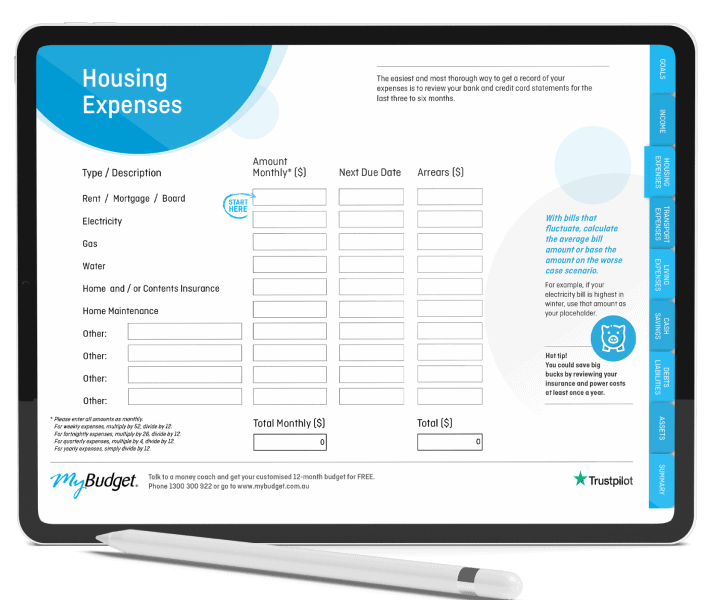Are credit card balance transfers a good idea?
When you’re drowning in credit card debt, a 0% balance transfer can feel like a lifeline – and sometimes it is. But there are also lots of people who find themselves even deeper in debt and stress as a result of balance transfers. Keep reading to find out why a balance transfer from credit card to credit card might not be the cure-all you’re hoping for.
What is a balance transfer credit card?
A balance transfer involves moving the balance of an existing card to a new one. To encourage card holders to make the move, banks often sweeten the deal with special offers, usually six to 12 months at 0% per annum. The benefit to the consumer is that their repayments directly reduce the principal which allows the debt to be paid off sooner.
So where can things go wrong?
5 dangers of balance transfers
1. You fail to pay off the balance before the 0% period ends
Depending on the amount you balance transfer from credit card to credit card, it’s unlikely that the minimum monthly payment will result in the balance being fully paid off by the end of the introductory period. When the discount period expires, any remaining balance will revert to the card’s normal interest rate, usually around 20% per annum.
2. You make purchases on your new card
The introductory rate usually only applies to the balance transfer. Any new purchases on the card will attract interest at the card’s normal rate – again, usually around 20% per annum. What’s more, the card issuer may decide to apply your monthly repayments to your balance transfer first while your new purchases continue to accrue interest month-on-month. Make sure you read the fine print.
3. You break the rules
Are credit card balance transfers a good idea? It depends on how well you follow the rules. Balance transfers usually come with strict rules – break them and the honeymoon is over. To adhere to the requirements, you’re probably going to have to pay on time and always meet the minimum repayments. There are also fees and charges associated with balance transfers. Some card providers charge a flat rate while others charge a percentage of the balance.
4. You keep using your old card
Some people ask us ‘Should I close my credit card after a balance transfer?’. In a perfect world, yes – you would cut up your old card as soon as the balance is transferred to your new one. Unfortunately, many people keep using their old cards – as well as their new ones – and end up with twice as much debt as they started with.
5. You have a new card with old habits
The biggest danger of using credit to pay off credit is that the underlying causes of your money problems are still there. A balance transfer may buy you time, but it’s no substitute for truly taking control of your money. The only way to do that is through budgeting.

So, what are alternatives to balance transfers?
So if you’re still wondering ‘Are credit card balance transfers a good idea?’, it’s important to keep in mind that although balance transfers can offer savings and more time to pay off debt, they also come with fees, rules about what you can transfer and certain credit requirements.
If you have a credit card debt that’s more than $10,000 then you might want to consider other options:
1. A personal debt consolidation loan
A personal debt consolidation loan is one option worth considering. You can consolidate your debt by taking out a personal loan, and then use the money to pay off your credit cards. Like credit cards, these loans are unsecured but their annual percentage rate (APR) is often much lower than standard APR on credit cards.
2. Home equity loan
Another option you could consider is a home equity loan. These loans are secured, which means interest rates will be lower than a credit card or personal loan. There are risks, though. Any time you borrow from your home equity, you’re putting your home as collateral, and if you can’t make your payments, you could lose your home.
Instead of seeking a balance transfer, why not chat with the team at MyBudget?
Are credit card balance transfers a good idea? Should I close my credit card after a balance transfer? It depends on how well you can manage your money and whether you’re fixing a problem at the source or just creating a new one.
A balance transfer from credit card to credit card may buy you time, but it’s no substitute for truly taking control of your money. The only way to do that is through budgeting.
Don’t know where to start with budgeting? That’s okay, give us a call on 1300 300 922 and ask to speak with a caring money management expert about putting together a tailored budget plan. All it takes is a quick chat with one of our friendly money coaches to book your free budget consultation or you can enquire online. Remember, we’re always here to help!
Ready to find out more?
Call 1300 300 922 or get started today

